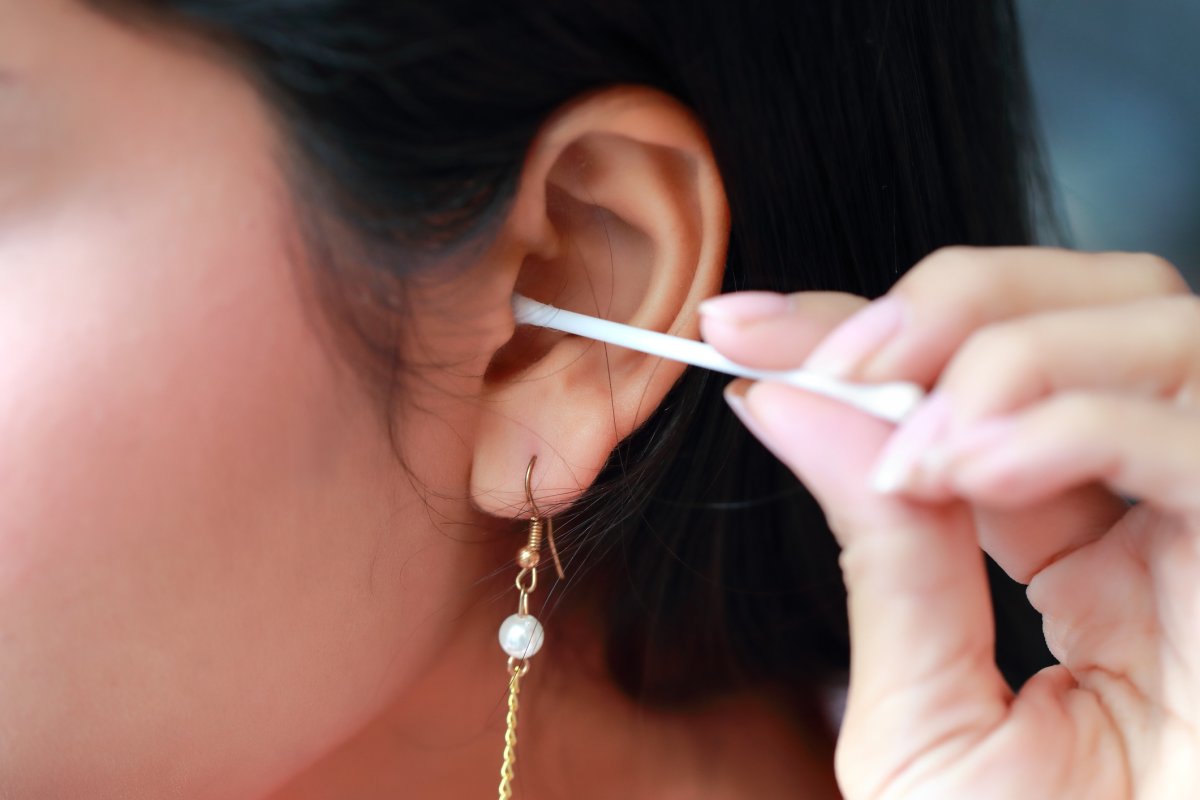It may simply be a routine to shove a cotton swab in your ear after a shower, but some experts say this common practice can make your hearing worse.

A recent report in CNN found earwax buildup over time can lead to hearing issues and even vertigo, a problem that is more common among seniors. But audiologist Maryam Ghaderi of House of Hearing in Toronto told Global News this can happen in any age group, and a lot of this comes down to our cleaning habits.
“People use cotton swabs all the time and they think they are taking wax out but they are pushing the wax to the side,” she said. “The more we do that over time… it builds up a hard wall of wax.”
READ MORE: Want to clean your ears? Put down the Q-tips, doctors reminding us
Earwax buildup can lead to plugged, blocked or ears that ring.
“Vertigo isn’t that common with wax — it depends if they have hearing loss or a medical condition to begin with.”
Ghaderi notes hearing loss from earwax may be more common for elderly people, mostly because of how much wax hardens over time. And as we age, our skin also becomes softer, sometimes collapsing the ear canal.
“It almost gets squished so the wax has a harder time getting pushed [out].”

CNN added earwax isn’t really wax at all, but a substance called cerumen that is made up of dirt, dust and debris. Ghaderi said the purpose of earwax is our body’s way of protecting our eardrums, so it is needed in our ears.

Get weekly health news
Cleaning your ear
Most of us still think cotton swabs are the best way to clean out earwax, but Ghaderi said it can be just as proactive to use a towel to clean your ears after a shower.
“If you’re going to use a cotton swab, don’t stick in the ear,” she said. Other experts in the past added that using other sharp tools or even bobby pins can be dangerous.
READ MORE: Children need to stop putting cotton swabs in their ears — study
“Scratching of the ear canal skin can lead to pain and infection,” said otologist Dr. Seth Schwartz to Reuters. “Sometimes, they just push the wax in further, and there also is the potential for damage to the eardrum.”
- After controversial directive, Quebec now says anglophones have right to English health services
- U.S. moves to ban Chinese software, hardware from all vehicles in America
- Amazon launches in-garage deliveries for some customers in Canada
- Something’s fishy: 1 in 5 seafood products are mislabelled, study finds
And when earwax gets too thick or you’re dealing with any type of itchiness, pain or hearing loss, Ghaderi said hearing clinics have different removal options.
A common way, she added, was using a syringe that pushes liquid into the ear, freeing up some of the hard wax. Another option is using a spray bottle that has a twirled head.
“It twirls the water around your ear in a safe way.”
READ MORE: WorksafeBC says 45 per cent of oil and gas drillers are losing their hearing
If the wax becomes too hard, or stone hard, there is an oil option that softens and bubbles away the earwax, which is later picked out with a pair of tweezers. But for the most part, earwax should come out naturally.
“The body naturally pushes out ear wax bit by bit towards the outside of the canal, but if you don’t regularly clean it, it can build up over time.
And while some may even use candles to remove wax (or candling), Ghaderi said this is a dangerous option. “It causes pressure in the ear turning the eardrum almost into scrambled eggs.”
— with files from Reuters








Comments